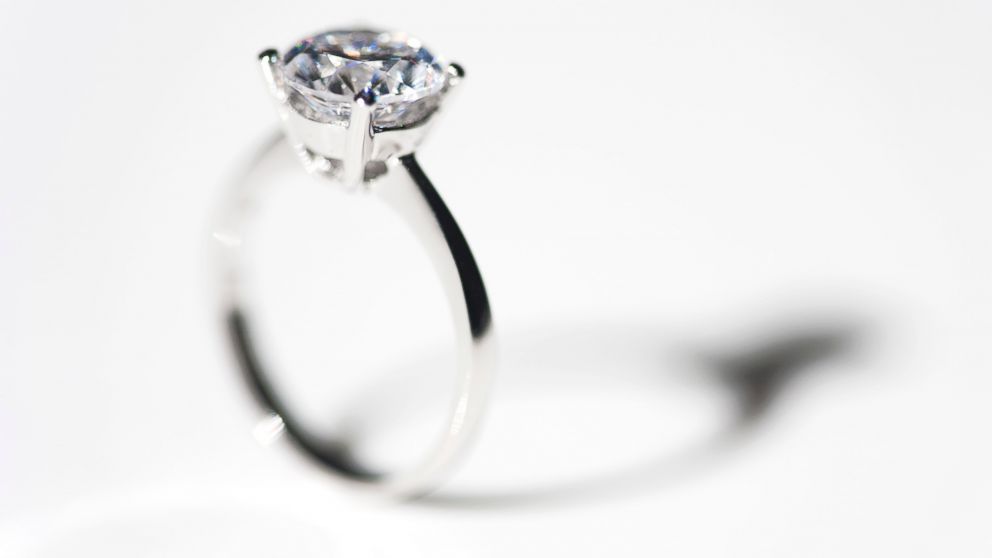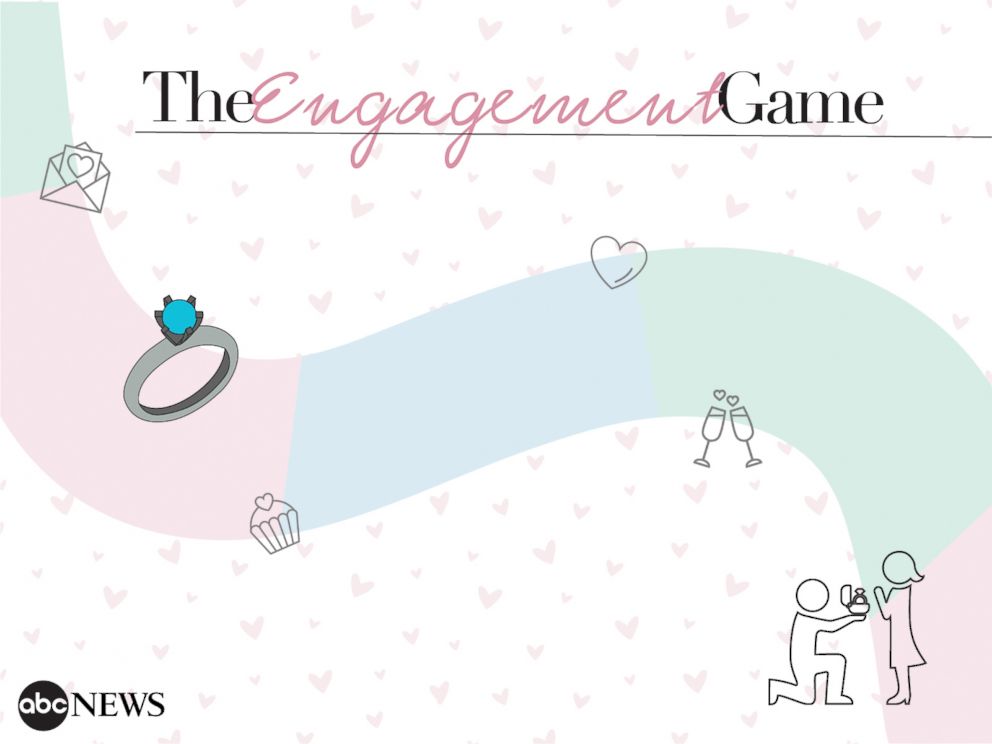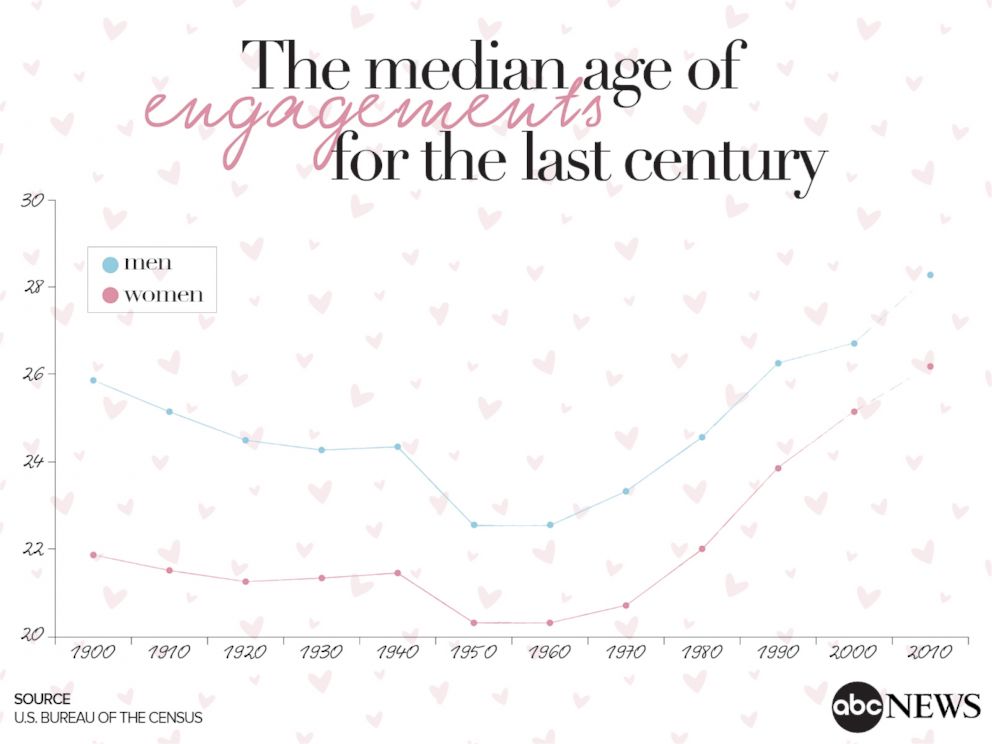I played the Engagement Game to secure a marriage proposal
ABC News' Joi-Marie McKenzie wrote about it in her hilarious brand new memoir.

— -- I couldn't take it anymore.
I woke up the morning after Valentine's Day three years ago, finally ready to ask my boyfriend of five years the dreaded question: "Where are we going?"
I was careful to purge any tone in my voice. If I sounded angry, he'd get defensive and I wouldn't get the loving (let's call him) Adam that I needed him to be. And if I asked pleading, he might think I didn't necessarily want to marry him, but wanted to marry anyone. Although, I wasn't sure there was much of a difference on that brisk New York City morning.
It wasn't the first time we had embarked on the "are we" or "aren't we going to get married" conversation. In fact, Adam had made his marital declaration to me, then 28-years-old, a year earlier on New Years Eve while dancing in a Washington, D.C. nightclub.
"You're going to be my wife one day, you know that?" he had said then.
We had even looked at engagement rings together on the Tiffany app that I just so happened to download, and imagined what our two kids would look like.
I had even played a game -- the Engagement Game -- to secure his proposal. It sounds silly now just typing it, but when you really love someone, the way I loved Adam, you'd try just about anything. The game was handed down to me by my older sister, a successful member of the invitation-only "Mrs." club.

The Engagement Game, she told me, is a five-step process to make me more appealing as a future wife. It involves simple tasks designed to make the man of your dreams drop down to one knee. Step one was writing down a list of qualities you desire in a husband, while step five tasked me with cooking engagement chicken.
As a proud type-A personality, I had to try it. The only other option was waiting.
That's what Chelsea Hilliard decided to do while she was dating her now-husband Montez Hilliard. The two also dated for five years.
Montez told ABC News he knew from the moment they'd met that he'd ask Chelsea to marry him, but being in a long distance relationship stalled the proposal. And although the two had spoken about marrying each other, "we really didn't have a timeline," Chelsea admitted.
After three years, however, Chelsea moved from Georgia to South Carolina, where Montez lived, to "speed up the process, but it did not."
"I was kind of impatient and confused," Chelsea said. "He would always say he wanted to marry me and he knew he wanted to, but it would never happen. And it kind of seemed like everybody else was getting engaged. I kept asking 'When is it going to happen for us?'"
It eventually did on July 7, 2012, six months after Montez purchased the ring, and after Chelsea, 32, almost ended the relationship entirely.
Montez, 35, explained why he drew out the process. "I took all of the power away from her," he said.
"Because she just knew in her mind how it was going to happen," Montez added, referencing the proposal. "She already knew who she wanted to call first, second, third. But I brought them all down for it, so she didn't have anybody to call. She was completely clueless."
The Hilliards both say they have an equitable marriage. When deciding major life decisions such as buying a house, buying a car and even having their first child, they decided together. But when it came to how they began their marriage, the engagement, the responsibility was solely on Montez. In fact, if Chelsea would've proposed, Montez would've declined.
"I would've flat out told her no," he admitted. "Because I think it's the man's responsibility. It's how I was raised. It's customary. It's the man's job to propose to the woman."
And Chelsea didn't feel right proposing, anyway. "It's just something I don't see myself doing," she said. "If I would've proposed to him, it would've been me rushing him. I always felt like the man should propose."
They're not alone.
In fact an Associated Press/GfK Public Affairs & Corporate Communications poll conducted in 2014 saw that women proposed in only about 5 percent of heterosexual couples surveyed.
Despite heterosexual marriages being more equitable than ever before -- as men and women divide the household chores, child-rearing and bill paying -- equity appears to stop at marriage's inception. Author Kamy Wicoff agreed.
"Women are caught in a Catch 22, sort of, between feminism and tradition where on the one hand they think of themselves as independent. On the other hand, they want to be proposed to and they have to kind of walk that line," she told ABC News.
Wicoff, who authored her memoir, "I Do But I Don't: Why the Way We Marry Matters," said if women were truly independent "they could just ask."
"But when they do [people ask women], 'Why do you want to get married so badly? What's wrong with you? It's tricky."
Answering that hypothetical question for myself, I place value in marriage because I grew up with parents who wed at 20 and 24 respectively and had a loving and fulfilling union, in which both shared equal footing. They'll celebrate 50 years together in August.
Still, it seemed women are taught to crave marriage as their crowning achievement, while men are encouraged to pursue careers and take their time, leaving many ladies in waiting. At least that’s my theory.
It doesn't help that the median marrying age is getting older. The National Center for Health Statistics says the median age for a first marriage for American women is 25.8, while it's 28.3 for men. In the 1950s, it was 20.3 for women and 22.8 for men.

Author Kay Hymowitz, who wrote "Manning Up: How the Rise of Women Has Turned Men into Boys," disagrees with my theory, saying it's not about socialization. Instead of society pressuring women to wed because of gender roles, Hymowitz said women feel the pressure due to biology.
"Your generation has been trained to talk that way," she said. "Your generation has been brought up with the idea that this is all socially constructed, but in fact there is something called the female body. It's best equipped to have children before the age of 35 and that is a reality."
Hymowitz points out that for women who desire children, a large majority of them want to raise children in a two-parent household, citing a number of benefits. According to the U.S. Census, 69 percent of children under the age of 18 live with two parents. And a woman's likelihood of having a baby decreases rapidly every year after the age of 30, according to the CDC's Division of Reproductive Health.
"My generation -- I'm a boomer -- has done your generation a disservice by not acknowledging that there are real limits that are not caused by society," she said. "They’re caused by your body. It will age."
Although women proposing marriage isn't widely socially acceptable yet, long-term couples deciding never to marry or raising children outside of marriage is more commonplace, Hymowitz said.
"The problem that young women face today, and young men, is that the script is completely unclear," Hymowitz, who recently authored "The New Brooklyn," explained. "And they’re not necessarily shared assumptions about when things should happen."
Hymowitz suggests for women, who feel like they're waiting, to talk about their expectations early in their relationships.
"These are not easy conversations to have with someone you're just starting to date. You don't want to scare the guy," she said, laughing. But she added that women would rather have an uncomfortable conversation early rather realizing later in the courtship that "the scripts and the expectations are different."
"It’s not just the women," she points out. "There are guys who want to be settled also and you have to read your partner and understand that you’re not dealing with someone who’s necessarily thinking the same way."
Wicoff added that instead of doing what I did -- using games and other passive aggressive tactics like having family members pack on the pressure -- have a "mutual discussion" about the direction and timing of your relationship.
After Adam and I had "the talk" and spent months debating if we should throw away five years or just go ahead and jump the broom, I decided to end it.
While the Engagement Game did prove successful, with Adam eventually wanting to wed, it had an unexpected side-effect on me.
After the games and the shape-shifting -- changing the very essence of myself to make myself more desirable -- I realized that I'd never have a successful marriage if I couldn't be myself. Fully, completely.
I had to stop seeing myself through the lens of Adam -- measuring my worth on his willingness to wed -- and start having the courage to become the authority on me. That meant I'd dare to love myself completely, regardless of if someone else deemed me marriage material or not.
Although I still want to walk down the aisle one day, if I never took those measured steps, I'd still be worthy -- worthy of love.
Joi-Marie McKenzie is the entertainment and lifestyle writer at ABC News. "The Engagement Game: Why I Said 'I Don't' to Marriage and 'I Do' to Me" is on sale now.




